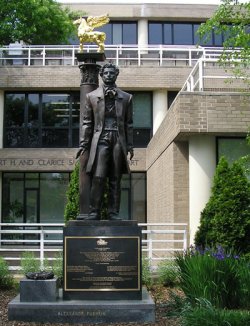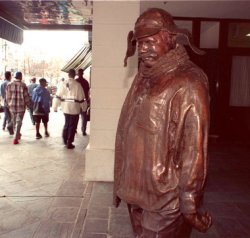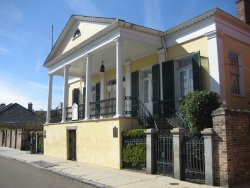Alexander Pushkin Statue
The Alexander Pushkin statue by Alexander Bourganov was erected in 2000 on the campus of George Washington University as part of a cultural exchange between Moscow and Washington. In 2009, a statue of the American poet Walt Whitman was erected in Moscow. The bronze sculpture of Pushkin is posed in front of a tall column, and pearched atop the column is the winged horse Pegasus, representing “poetry and creative inspiration.”















